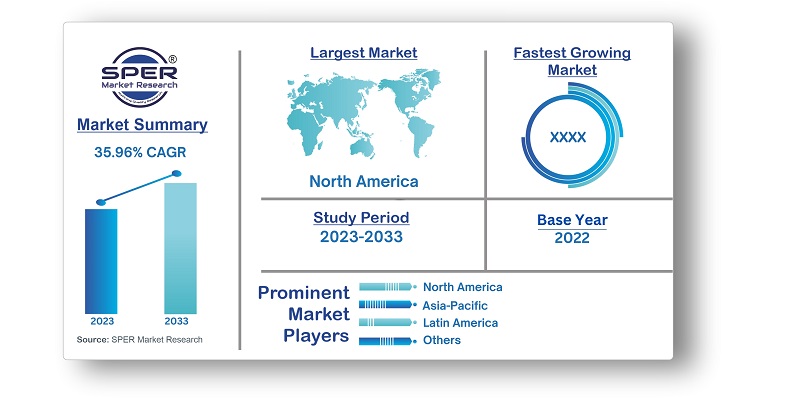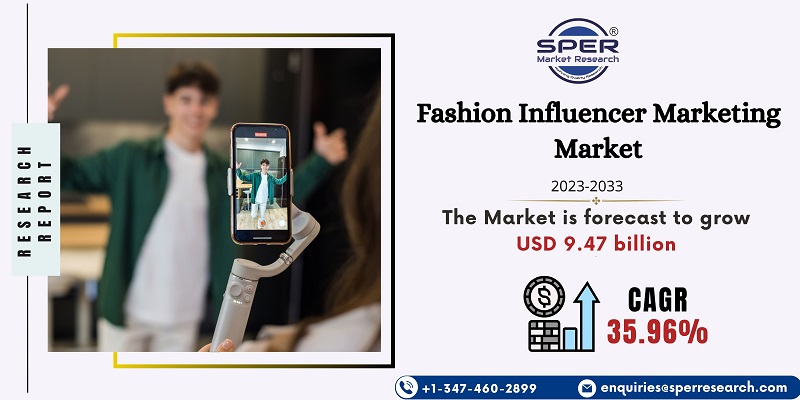
Fashion Influencer Marketing Market Growth, Size, Trends, Demand, Revenue and Future Outlook
Fashion Influencer Marketing Market Size- By Influencer type, By Fashion type- Regional Outlook, Competitive Strategies and Segment Forecast to 2033
| Published: Dec-2023 | Report ID: FMCG23162 | Pages: 1 - 235 | Formats*: |
| Category : Consumer & Retail | |||
- 2023: Dior collaborated with Kendall Jenner in April to ensure the successful launch of their new handbag line. Jenner's social media channel was used by the famous fashion brand to promote the product line.
- 2023: Nike collaborated with Charlie D'Amelio to ensure the successful launch of their new sneaker collection in February. The popular American TikToker used her app channel to promote the product line.


| Report Metric | Details |
| Market size available for years | 2019-2033 |
| Base year considered | 2022 |
| Forecast period | 2023-2033 |
| Segments covered | By Influencer type, By Fashion type, |
| Regions covered | North America, Asia-Pacific, Latin America, Middle East & Africa and Europe |
| Companies Covered | AspireIQ, BrandSnob, Facebook Fourstarzz Media, Influencity, IZEA Worldwide Julius, LinkedIn, Mavrck , YouTube |
- Consumers
- E-commerce Platforms
- Fashion Events and Shows
- Fashion Publications and Media Outlets
- Investors and Venture Capitalists
- Marketing Agencies
- Social Media Platforms
- Technology Providers
- Others
| By Influencer type: |
|
| By Fashion type: |
|
| By Region: |
|
- Global Fashion Influencer Marketing Market Size (FY’2023-FY’2033)
- Overview of Global Fashion Influencer Marketing Market
- Segmentation of Global Fashion Influencer Marketing Market By Influencer type (Mega Influencer, Macro Influencer.)
- Segmentation of Global Fashion Influencer Marketing Market By Fashion type (Beauty & Cosmetics, Apparel)
- Statistical Snap of Global Fashion Influencer Marketing Market
- Expansion Analysis of Global Fashion Influencer Marketing Market
- Problems and Obstacles in Global Fashion Influencer Marketing Market
- Competitive Landscape in the Global Fashion Influencer Marketing Market
- Impact of COVID-19 and Demonetization on Global Fashion Influencer Marketing Market
- Details on Current Investment in Global Fashion Influencer Marketing Market
- Competitive Analysis of Global Fashion Influencer Marketing Market
- Prominent Players in the Global Fashion Influencer Marketing Market
- SWOT Analysis of Global Fashion Influencer Marketing Market
- Global Fashion Influencer Marketing Market Future Outlook and Projections (FY’2023-FY’2033)
- Recommendations from Analyst
1.1. Scope of the report1.2. Market segment analysis
2.1. Research data source
2.1.1. Secondary Data2.1.2. Primary Data2.1.3. SPER’s internal database2.1.4. Premium insight from KOL’s
2.2. Market size estimation
2.2.1. Top-down and Bottom-up approach
2.3. Data triangulation
4.1. Driver, Restraint, Opportunity and Challenges analysis
4.1.1. Drivers4.1.2. Restraints4.1.3. Opportunities4.1.4. Challenges
4.2. COVID-19 Impacts of the Global Fashion Influencer Marketing Market
5.1. SWOT Analysis
5.1.1. Strengths5.1.2. Weaknesses5.1.3. Opportunities5.1.4. Threats
5.2. PESTEL Analysis
5.2.1. Political Landscape5.2.2. Economic Landscape5.2.3. Social Landscape5.2.4. Technological Landscape5.2.5. Environmental Landscape5.2.6. Legal Landscape
5.3. PORTER’s Five Forces
5.3.1. Bargaining power of suppliers5.3.2. Bargaining power of buyers5.3.3. Threat of Substitute5.3.4. Threat of new entrant5.3.5. Competitive rivalry
5.4. Heat Map Analysis
6.1. Global Fashion Influencer Marketing Market Manufacturing Base Distribution, Sales Area, Product Type6.2. Mergers & Acquisitions, Partnerships, Product Launch, and Collaboration in Global Fashion Influencer Marketing Market
7.1. Global Fashion Influencer Marketing Market Value Share and Forecast, By Influencer type, 2023-20337.2. Mega Influencer7.3. Macro Influencer
8.1. Global Fashion Influencer Marketing Market Value Share and Forecast, By Fashion type, 2023-20338.2. Beauty & Cosmetics8.3. Apparel
9.1. Global Fashion Influencer Marketing Market Size and Market Share
10.1. Global Fashion Influencer Marketing Market Size and Market Share By Influencer type (2019-2026)10.2. Global Fashion Influencer Marketing Market Size and Market Share By Influencer type (2027-2033)
11.1. Global Fashion Influencer Marketing Market Size and Market Share By Fashion type (2019-2026)11.2. Global Fashion Influencer Marketing Market Size and Market Share By Fashion type (2027-2033)
12.1. Global Fashion Influencer Marketing Market Size and Market Share By Region (2019-2026)12.2. Global Fashion Influencer Marketing Market Size and Market Share By Region (2027-2033)12.3. Asia-Pacific12.3.1. Australia12.3.2. China12.3.3. India12.3.4. Japan12.3.5. South Korea12.3.6. Rest of Asia-Pacific12.4. Europe12.4.1. France12.4.2. Germany12.4.3. Italy12.4.4. Spain12.4.5. United Kingdom12.4.6. Rest of Europe12.5. Middle East and Africa12.5.1. Kingdom of Saudi Arabia12.5.2. United Arab Emirates12.5.3. Rest of Middle East & Africa12.6. North America12.6.1. Canada12.6.2. Mexico12.6.3. United States12.7. Latin America12.7.1. Argentina12.7.2. Brazil12.7.3. Rest of Latin America
13.1. AspireIQ13.1.1. Company details13.1.2. Financial outlook13.1.3. Product summary13.1.4. Recent developments13.2. BrandSnob13.2.1. Company details13.2.2. Financial outlook13.2.3. Product summary13.2.4. Recent developments13.3. Facebook
13.3.1. Company details13.3.2. Financial outlook13.3.3. Product summary13.3.4. Recent developments
13.4. Fourstarzz Media.
13.4.1. Company details13.4.2. Financial outlook13.4.3. Product summary13.4.4. Recent developments
13.5. Influencity
13.5.1. Company details13.5.2. Financial outlook13.5.3. Product summary13.5.4. Recent developments
13.6. IZEA Worldwide
13.6.1. Company details13.6.2. Financial outlook13.6.3. Product summary13.6.4. Recent developments
13.7. Julius
13.7.1. Company details13.7.2. Financial outlook13.7.3. Product summary13.7.4. Recent developments
13.8. LinkedIn
13.8.1. Company details13.8.2. Financial outlook13.8.3. Product summary13.8.4. Recent developments
13.9. Mavrck
13.9.1. Company details13.9.2. Financial outlook13.9.3. Product summary13.9.4. Recent developments
13.10. YouTube
13.10.1. Company details13.10.2. Financial outlook13.10.3. Product summary13.10.4. Recent developments
13.11. Others
SPER Market Research’s methodology uses great emphasis on primary research to ensure that the market intelligence insights are up to date, reliable and accurate. Primary interviews are done with players involved in each phase of a supply chain to analyze the market forecasting. The secondary research method is used to help you fully understand how the future markets and the spending patterns look likes.
The report is based on in-depth qualitative and quantitative analysis of the Product Market. The quantitative analysis involves the application of various projection and sampling techniques. The qualitative analysis involves primary interviews, surveys, and vendor briefings. The data gathered as a result of these processes are validated through experts opinion. Our research methodology entails an ideal mixture of primary and secondary initiatives.



Frequently Asked Questions About This Report
PLACE AN ORDER
Year End Discount
Sample Report
Pre-Purchase Inquiry
NEED CUSTOMIZATION?
Request CustomizationCALL OR EMAIL US
100% Secure Payment






Related Reports
Our Global Clients
Our data-driven insights have influenced the strategy of 200+ reputed companies across the globe.




















